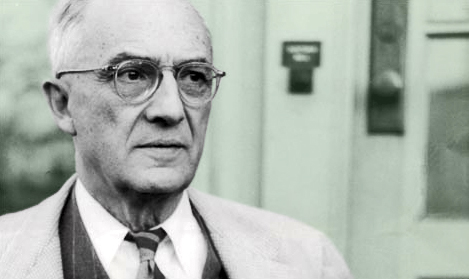
This letter, a response to an editorial written by one Thomas Uzzell, shows Williams expounding upon what he views as the shortcomings of the American literary world. For a sense of how Williams’s views developed in the following years, click here and listen to his 1950 radio appearance on the Mary McBride Show.
To the Editor of A YEAR MAGAZINE
April, 1934
Mr. Uzzell ably and sympathetically states the terms on which the never-to-be-ended battle against “The existing, old, reliable, literary magazines” must go on.
My comment on his categories would be:
1. The magazines which pay and still pretend to keep a literary standard, even though we cannot accept their shrewdly whittled codes, can print no more than about 200 short stories a year in the aggregate. The larger section of the field is occupied by nonpaying periodicals. Furthermore, it is this “radical” enterprise which has always dragged the paying magazines out of their own filth finally. Mr. Uzzell is too genial and forgiving toward the sluggardly offenses committed against good writing by the “old, reliable, literary magazines” which he cannot quite keep from somewhat defending. They have only one virtue, they pay.
2. Americans in general are infantile in their reactions to sex. It still remains a burning topic with us; fully three quarters of the scripts that come into the small magazine offices have sex for theme; and they are terrible in their unenlightenment. I doubt if we shall ever achieve the French viewpoint or deftness here. We are not much better at the pathology of it than at the physiology. What to do with all this steam is something that has puzzled me a good deal. I am glad that Mr. Uzzell recommends further investigation. Is something that we simply cannot drop, we haven’t done anything distinctive with it as yet. But the dirty mindedness of the pay magazine editors with their lists of censored words is the direct cause of forcing the thing underground into the frankly sex toilet-paper rags.
3. It’s a hard thing for a young writer to find time for reading; he can’t get to the books and he is probably so harassed by parental, economic, and sacredly national impedimenta that he hasn’t even a hardwood chair to sit down on before table for writing. Compared with Europe, America is completely bare of books and they cost too much for every damn-fool reason. So, we don’t read. It hasn’t happened to us yet to have a literary saturation of the atmosphere. Therefore we don’t know what Europe has done before us. We think, then, that because we put down what we see (and what else, primarily, can we do?) we have thus achieved realism and so interest. I am emphasizing this from Mr. Uzzell’s statements because it is important. I say all this just to thank Mr. Uzzell for having mentioned Zola. Zola makes more of our realism look pretty sick.
“The high art of the realist is much more subtle and profound than most youthful experimenters believe.” Then comes out the most interesting portion of Uzzell’s article. He gives three subcategories: (a) simply physical or external realism, (b) psychological realism, and (c) biological realism. He should have extended his comments on this last. I take it he means what we see in Shakespeare. Hadn’t it better have been called, imagination? “Use your imagination” is the common American term. It amounts to realistic observation related into an equally real schematic whole. But I’d like to say a word for the first of these sub-heads also:
“Simply physical or external realism” has an important place in America still. We know far less, racially, than we should about our localities and ourselves. But it is quite true that the photographic camera will not help us. We can though, if we are able to see general relationships in a local setting, set them down verbatim with a view to penetration. And there is a cleanliness about this method which if it can be well handled makes a fascinating project in which every bit of subtlety and experience one is possessed of may be utilized.
Plot is like God: the less we formulate it the closer we are to the truth.
For some time I have maintained that the “radical magazine” is not a series of failures, always dying, but one continuous success, impossible to kill. It is an unconscious cooperative division of effort. Some of the cruder faults in its make-up have been dissected of and profitably laid bare by Mr. Uzzell. I’d like to know more about Anvil.
William Carlos Williams


